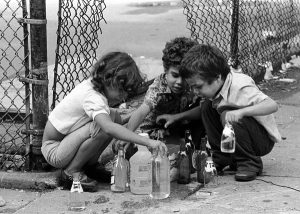The topic of child welfare looms large in my novel Our Orbit, which tells the story of an Appalachian girl who crosses the tracks to become foster daughter to an educated family. Love and conflict ensue as all the burning social issues of our time raise their sometimes ugly heads. In gratitude to those who helped me learn about the many demands and great rewards of foster care, I am sharing information on this topic throughout the month of May 2015, National Foster Care Month.
From the website of the Wisconsin Coalition for Children, Youth & Families—
Forgiveness is a concept that can be challenging to understand and put into practice, especially for children. Just like you teach most skills, starting early and using repetition are keys to success. Forgiveness is no exception.
When children are able to learn these skills, it will become ingrained within them, which will help them to be able to move forward in life.
Dag Hammarskjold, winner of the Nobel Peace prize and Secretary to the UN wrote, “Forgiveness is the answer to the child’s dream of a miracle by which what is broken is made whole again, what is soiled is again made clean.”
Many adopted and foster children who have been adopted from the foster care system and some orphanages have histories that include being “broken” and “soiled,” as Hammarskold says. Forgiveness gives them the opportunity to look to the future and make “clean” their past.
The facts of their past remain, but their future can still be influenced with opportunities to make positive choices. As parents, you can slowly help them let go and move on.
David Pelzer, author and survivor of one of the worst cases of abuse in California’s history, wrote in his third book A Man Named Dave: A Story of Triumph and Forgiveness that “the answer for all victims of abuse is compassion and forgiveness.”
When we allow our children to live without forgiving others, it affects their physical, psychological, and spiritual lives.
Forgiveness can be simply the decrease in negative thoughts, feelings, and actions toward another. As you continue to talk about and practice forgiveness, there will be a gradual increase to more positive thinking, feeling, and acting which lends to healthier children who become healthier adults.
To continue reading on the website of the Coalition for Children, Youth & Families, click here.
Thank you for learning about issues involved in foster care! For additional information—
Visit the official site of National Foster Care Month 2015. That’s right now!
Visit the National Foster Parent Association.
And feel free to share your insights in the “Comments” section below.

